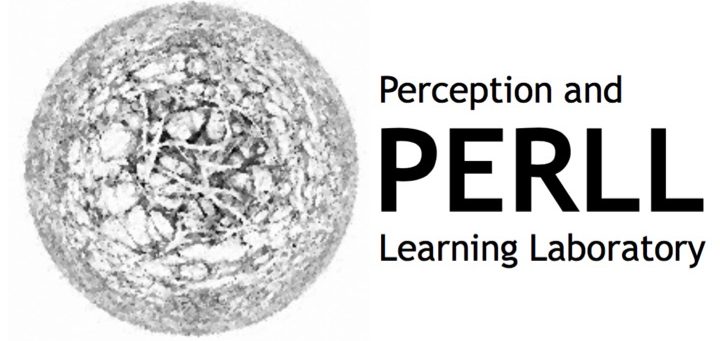Our research
We are an inter-disciplinary lab doing fieldwork and laboratory research using a combination of theoretical and methodological tools from a range of disciplines such as Anthropology, Cognitive Neuroscience, Cognitive Linguistics, and Experimental Psychology.
We specialise in the following areas:
- Language-mediated perception and cognition (linguistic/cultural relativity)
- Bilingual Cognition (learning mechanisms/cognitive consequences of bilingualism)
- Perceptual and statistical learning using artificial grammars
- Lexical processing/representation
Our recent publications
2017
Bylund, E., & Athanasopoulos, P. (2017). The Whorfian time warp: Representing duration through the language hourglass. Journal of Experimental Psychology: General.[Epub ahead of print]
Ramos, S., Fernández, Y., Antón, E., Casaponsa, A., & Duñabeitia, J.A. (2017) Does learning a language in the elderly yield enhanced cognitive flexibility? Journal of Neurolinguistics 43(A):39-48
Rebuschat, P., Meurers, D., & McEnery, T. (in press, June 2017). Language learning research at the intersection of experimental, computational, and corpus-based approaches: An introduction. Special issue of Language Learning.
Ziegler, N., Meurers, D., & Rebuschat, P., Moreno Vega, J. L., Li, W., Ruiz, S., Chinkina, M., Grey, S., (in press, June 2017). Interdisciplinary research at the intersection of CALL, NLP, and SLA: Methdologoical implications from an input enhancement project. Language Learning.
2016
Athanasopoulos, P., & Albright, D. (2016). A perceptual learning approach to the Whorfian hypothesis: supervised classification of motion. Language Learning, 66(3), 666-689.
Athanasopoulos, P., Bylund, E., Casasanto, D. (2016). Introduction to the special issue: new and interdisciplinary approaches to linguistic relativity. Language Learning. 66, 482-486.
Athanasopoulos, P., Boutonnet, B. (2016). Learning grammatical gender in a second language changes categorization of inanimate objects: replications and new evidence from English learners of L2 French. In: Cross-linguistic influence in second language acquisition. Bristol : Multilingual Matters p. 173-192.
Aveledo, F., & Athanasopoulos, P. (2016). Second language influence on first language motion event encoding and categorization in Spanish-speaking children learning L2 English. International Journal of Bilingualism, 20, 403-420.
Duñabeitia, J. A., Ivaz, L. & Casaponsa, A. (2016). Developmental changes associated with cross-language similarity in bilingual children. Journal of Cognitive Psychology, 28(1): 16-31.
Rogers, J., Revesz, A., & Rebuschat, P. (2016). Implicit and explicit knowledge of inflectional morphology. Applied Psycholinguistics, 37(4), 781-812.
Tagarelli, K., Ruiz Hernandez, S., Moreno Vega, J., & Rebuschat, P. E. (2016). Variability in second language learning: the roles of individual differences, learning conditions, and linguistic complexity. Studies in Second Language Acquisition, 38(Special Issue 2), 293-316.
2015
Andringa, S. and Rebuschat, P. (Eds.) (2015). New directions in the study of implicit and explicit learning. Special issue of Studies in Second Language Acquisition, 37(2).
Andringa, S. and Rebuschat, P.(2015). New directions in the study of implicit and explicit learning: An introduction. Special issue of Studies in Second Language Acquisition, 37(2).
Athanasopoulos, P., & Treffers-Daller, J. (2015). Language diversity and bilingual processing. International Journal of Bilingual Education and Bilingualism, 18 (5), pages.
Athanasopoulos, P., Bylund, E., Montero-Melis, G., Damjanovic, L., Schartner, A., Kibbe, A., Riches, N., & Thierry, G. (2015). Two languages, two minds: Flexible cognitive processing driven by language of operation. Psychological Science, 26(4), 518-526.
Athanasopoulos, P., Damjanovic, L., Burnand, J., & Bylund, E. (2015). Learning to think in a second language: effects of proficiency and length of exposure in English learners of German. Modern Language Journal, 99, Supplement 1, p. 138-153.
Bylund, E., & Athanasopoulos, P. (2015). Introduction: cognition, motion events, and SLA. Modern Language Journal, 99, Supplement 1, pages.
Bylund, E., & Athanasopoulos, P. (2015). Motion event categorisation in a nativised variety of South African English. International Journal of Bilingual Education and Bilingualism, 18(5), 588-601.
Bylund, E., & Athanasopoulos, P. (2015). Televised Whorf: cognitive restructuring in advanced foreign language learners as a function of audio-visual media exposure. Modern Language Journal, 99, Supplement 1, 123-137.
Casaponsa, A., Antón, E., Pérez, A., & Duñabeitia, J.A. (2015). Foreign language comprehension achievement: insights from the cognate facilitation effect. Frontiers in Psychology, 6:588.
Casaponsa, A. & Duñabeitia, J. A. (2015). Lexical organization of language-ambiguous and language-specific words in bilinguals. The Quarterly journal of Experimental Psychology, 69(3):589-604.
Casaponsa, A., Carreiras, M. & Duñabeitia, J.A. (2015). How do bilinguals detect the language of the words they read? Brain Research 1624:153-66.
Flecken, M., Athanasopoulos, P., Kuipers, J.R., & Thierry, G. (2015). On the road to somewhere: brain potentials reflect language effects on motion event perception. Cognition, 141, 41-51.
Grey, S., Williams, J. N., & Rebuschat, P. (2015). Individual differences in incidental language learning: The role of learning styles, personality, and working memory. Learning and Individual Differences, 38, 44-53.
Rebuschat, P. (2015). Introduction: Implicit and explicit learning of languages. In P. Rebuschat (Ed.), Implicit and explicit learning of languages. Amsterdam: John Benjamins.
Rebuschat, P. (Ed.) (2015). Implicit and explicit learning of languages. Amsterdam: John Benjamins.
Rebuschat, P., Hamrick, P., Riestenberg, K., Sachs, R., and Ziegler, N. (2015): Triangulating measures of awareness: A contribution to the debate on learning without awareness. Studies in Second Language Acquisition, 37(2). [Click here to access our SLRF 2013 presentation.]
Rogers, J., Revesz, A., & Rebuschat, P. (2015). Challenges in implicit learning research: Validating a novel artificial language. In P. Rebuschat (Ed.), Implicit and explicit learning of languages. Amsterdam: John Benjamins.
Tagarelli, K. M., Borges Mota, M. & Rebuschat, P. (2015). Working memory, learning context, and the acquisition of L2 syntax. In Zhisheng, W., Borges Mota, M. & McNeill, A. (Eds.) Working memory in second language acquisition and processing: theory, research and commentary. Bristol: Multilingual Matters.
Our affiliated labs and centres
Include to affililated labs and center.
Our research projects →
Pages: 1 2
